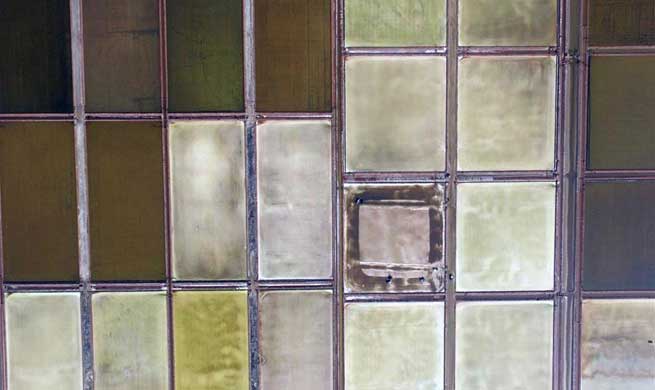WASHINGTON, Oct. 3 (Xinhua) -- Think of a pair of eyeglasses with a thickness thinner than a sheet of paper. U.S. researchers made it possible with the first flat lens capable of correctly focusing a large range of colors to the same focal spot.
The study published on Wednesday in the journal Light: Science & Applications described the flat lenses, only a micro thick, made of pixels or "meta-atoms," with the potential to drastically reduce the size and weight of any optical devices used for imaging.
A conventional lens works by routing all the light falling upon it by stacking multiple lenses so that different colors, which are never in focus at the same time, arrive at the focal point at the same time, thus increasing weight and cost. And that's why a conventional lens is thicker at its center than at its edge.
Scientists led by Yu Nanfang with Columbia University engineered two-dimensional structures to control light propagation, using meta-atoms that are just a fraction of the wavelength of light and delays the light passing through it by a different amount.
By patterning a very thin flat layer of nanostructures on a substrate as thin as a human hair, the researchers were able to achieve the same function as a much thicker and heavier conventional lens system, according to the study.
Yu's team fabricated the meta-lenses using standard 2D planar fabrication techniques similar to those used for fabricating computer chips, but it' s simpler because they have to define just one layer of nanostructures.
The advantage of the flat meta-lenses is that, unlike conventional lenses, they do not need to go through the costly and time-consuming grinding and polishing processes, according to the researchers.
"We can therefore send our lens designs to semiconductor foundries for mass production and benefit from economies of scale inherent in the industry," said Sajan Shrestha, a doctoral student in Yu's group who was a co-lead author of the study.
Also, the lens can focus light of any arbitrary polarization state, so that it works not only in a lab setting, where the polarization can be well controlled, but also in real world applications, where ambient light has random polarization.
















